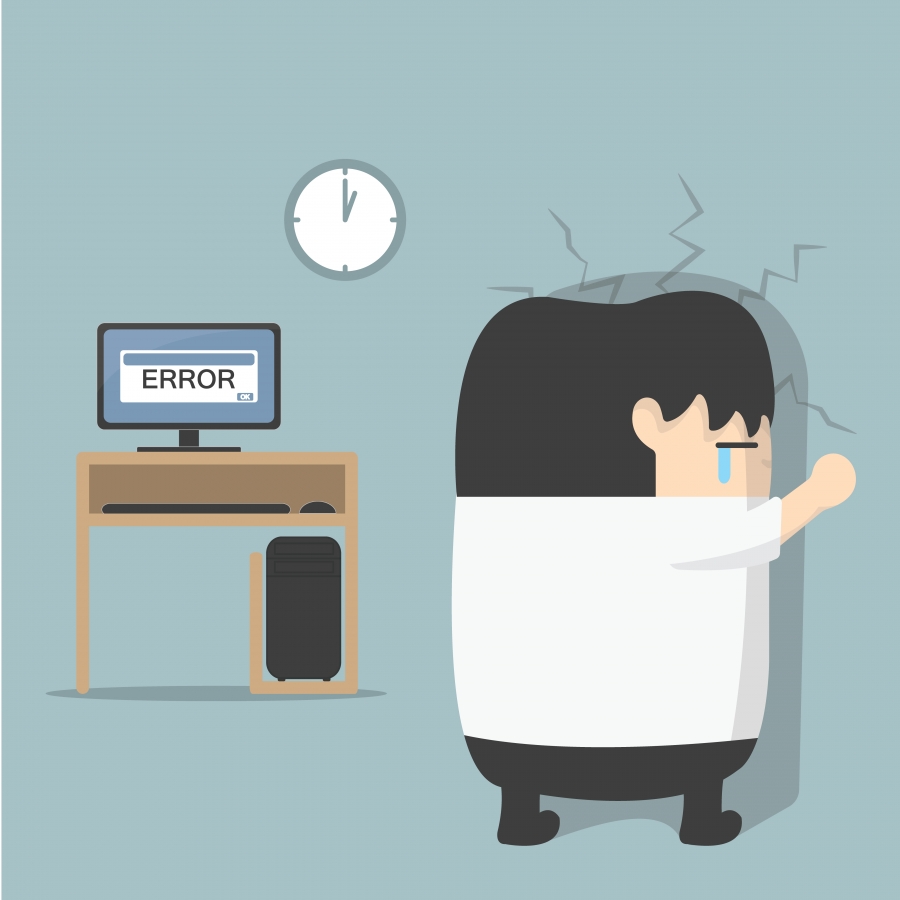
We spend a lot of time here at NPG talking websites. In a typical year, we may talk to 250-300 different potential clients. At this point, we've seen it all. Unfortunately, we see a lot of the same mistakes over and over again. We encourage our potential clients to do their due diligence and research. Not just into our capabilities, but also into the process of building a website in general. Start your research here, and avoid these common mistakes potential clients make every day:
1) Not Having A Plan
You'd be amazed at how many prospective clients have no plan, strategy, or detailed approach to their project. We always ask all new leads to send us a specification - something on paper that describes their project. Do not approach an agency, or multiple agencies, without each being provided with the same document. Otherwise, you never know what their understanding will be. A verbal conversation is great, but a spec is better!
2) Biting Off More Than You Can Chew
Way too often we see people with the next big idea come to us, having had their project explode due to complexity. It's important to remember that Rome wasn't built in a day. Or, to give you your daily overdose of cliches… "there isn't such a thing as a 'finished website.'" Clients with overly complex specifications are best suited toning their proof of concept down, and building via a phased approach Develop to market quickly, and make corrections as you go - approaching via an agile approach is the best way to develop your product. Learn via this iterative approach and you will save yourself time and money in the long run.
3) Confusing "Designers" With "Developers"
A frequent mistake uninformed buyers make is confusing what designers do with what developers do. These days, almost all web projects consist of two parts: the design of the site itself (meaning the artwork and look) and the development into a content management system (CMS). Very few projects produced in the CMS era are done without integration into a framework or platform.
The truth is, any "design" must be coded into HTML/CSS (and more), tested thoroughly, and integrated into a framework. This means that unless your designer is also a developer, capable of writing that code, you may not have hired who you thought you did. Typically, the best designers are not developers capable of coding, testing, and installing your approved designs into a framework. Always be sure that whoever you may choose, they can actually accomplish both parts of the project.
4) Confusing "Developers" With "Customizers"
Customers developing complex projects such as commerce-based systems, community, or other transactional applications should be extra careful when researching potential agencies. There is an epidemic of web platform "Customizers" who are posing as developers when in fact they lack the ability to custom develop solutions.
A prime example would be an agency that specializes in Drupal or WordPress customization but label themselves as "web developers". While those platforms might satisfy some of your requirements, in reality, they can't do everything. If you are developing something that you sense may need precise custom development, or are building something that is unique, ask your agency to provide examples of similar development projects where the requirements were specific and the solution customized. Ask why they chose to take the approach they did and why they didn't do x, y or z instead.
5) Looking For Designers That Specialize In "X" Industry Specifically
We hear the question often: "Do you design sites for x industry"?
The fact is, it doesn't really matter. A good agency will follow a design process that includes discovery and industry analysis. Agencies that specialize in a given industry will not perform any background research, typically giving the same solution and design principles to each client. Furthermore, there is a risk of cross-contamination in such a setting where an agency could be helping your competitors at the same time as you.
*** The only exception, MAYBE, would be heavily regulated industries. But again, that is more of a content compliance issue, in most cases.
6) Confusing Large With Good
Sometimes, people just assume that the larger the agency, and the larger the price, the better the quality of service or finished product. This is false, false, false! In most cases, working with a larger agency for a one-off project is only large in terms of the mistake you are making. First, massive agencies suffer from serious issues when it comes to speed. Nothing is done in a reasonable timeframe. Secondly, the larger the agency, the less likely you are to deal with senior personnel unless you are a sizeable account. You may meet and greet with a senior staffer during the sales process, but most likely you will be shuffled down the chain of command to junior level personnel as your day to day contacts. Finally, those team members will most likely not survive your project: large agencies have tremendous turnover - both internally and to other agencies - leaving you constantly explaining the same things, over and over.
Most importantly, though, is that because of bloated team sizes and massive overhead, those agencies will charge an arm and a leg for a project that a smaller, more nimble group could perform in half the time for half the budget.
7) Hiring Local Because… It's Local
Many times, the first question clients have is "Where are you located?" This should almost NEVER be question number one! Yes, location does play a role in the ongoing communication and relationship. However, the ability of the agency, the team members and the process are much higher on the list than location.
We've had clients in the past who after years of steady work, we still haven't met. This may sound weird - but it's the new economy. Prospective clients must find a team they are comfortable with, that share in their philosophy, before they worry about location. Countless times we've seen prospective clients sign with an agency closer to their location, and end up coming back for more information in the future. Closer doesn't always equal better.
8) Not Checking References
This may sound like a no-brainer - but check your references. Bad agencies have a hard time getting any references. Make sure you research the projects, the sites and then have a discussion with the reference. Ask the right questions about process, team members, personalities. Make an informed decision after doing the proper due diligence.
9) Not Entertaining New Technologies Or Platforms
It's important you do your research on technology platforms or approaches during your search for an agency. We highly recommend it! But always be open to the suggestions of the agencies bidding. In many cases, clients are interested in staying with a technology that is aged or out of date "simply because". The technology powering websites changes on a regular basis, and if you are going to endeavor to redesign or redevelop your site, it makes sense to spend the time entertaining all the newest possibilities. No one should be using Cold Fusion in 2013!
10) Choosing The Lowest Bidder
We see this scenario all the time. Creative projects are not a one or zero proposition - there are grey areas and intangibles that must be considered. Team experience, process, agency structure…The list goes on and on. One of the interesting things about the design/development industry that you don't see with other contractual arrangements is extreme pricing divergence. Typically, this exists because of the structure and makeup of those agencies doing the bidding, i.e., a smaller agency may actually be one person working from home with various outsourced contractors, while a midsize agency has all the capabilities in house, and the large agency is charging 20x for the same project. Is the lower priced option worth the risk? Is the higher priced option at all a value? Entertain your options carefully!



